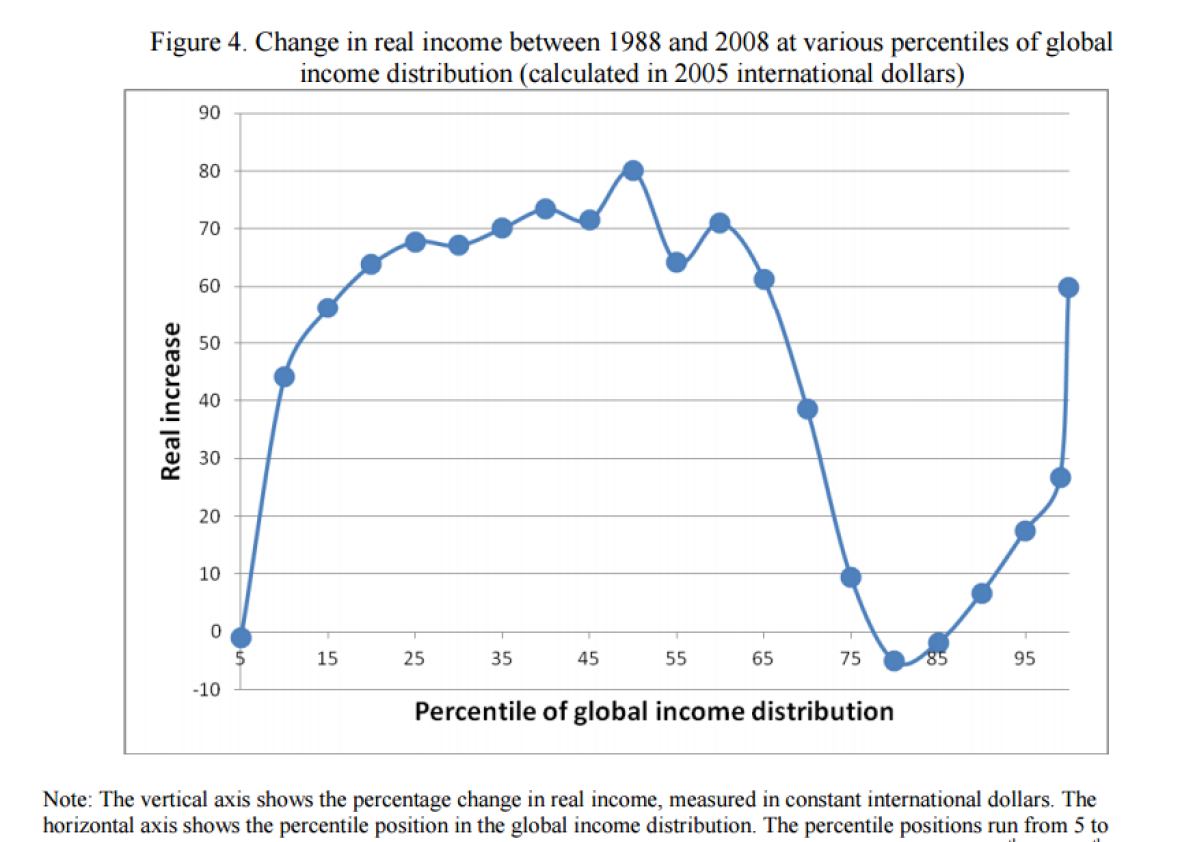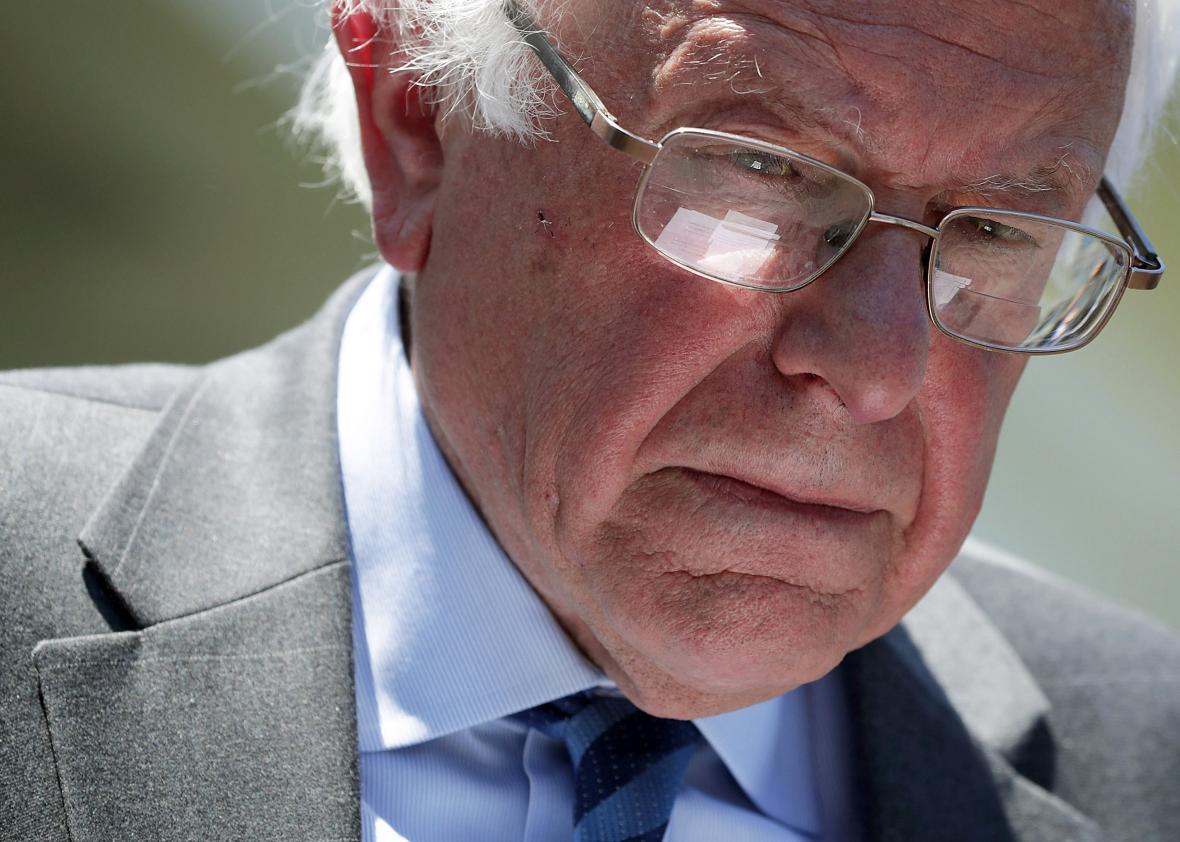The Brexit referendum has given Bernie Sanders an opportunity to say, ”I told you so.” In Wednesday morning’s New York Times, the still-technically-a-presidential candidate argues, as many have, that Brits voted to leave the EU as an angry rebuke to elites over growing economic inequality brought on by globalization—the same issues that he’s made the focus of his White House campaign. The man makes some fine points. But then, about midway through, there’s this:
Let’s be clear. The global economy is not working for the majority of people in our country and the world. This is an economic model developed by the economic elite to benefit the economic elite. We need real change.
This is Bernie Sanders’, and much of the left’s, elevator pitch on globalization. It’s a simple, ideologically comforting take—black hats vs. white hats, Wall Street financiers vs. hard-working factory employees. But it just doesn’t track with reality. The fact is, most of the world has seen its standard of living improve quite a bit in the era of free trade. And while you can argue about whether or not that means the global economy is “working,” or working optimally, it is absolutely impossible to have a meaningful discussion about how the world has changed in the past 30 or so years without acknowledging and weighing that progress.
You may have seen this chart before.

These days, it’s the most important graph in the world, so far as economics blogs are concerned—a go-to explanation for the simultaneous rise of hard-right, xenophobic, anti-trade movements all around the United States and Europe. First published in a World Bank working paper by Branko Milanovic, it shows the winners and losers from globalization between 1988 and 2008. The global poor and middle class (with the exception of the bottom 5 percent) have seen their incomes rise a great deal. So have the global rich, the top 10 percent. But, as Milanovic writes:
The biggest losers (other than the very poorest 5%), or at least the “non-winners,” of globalization were those between the 75th and 90th percentiles of the global income distribution whose real income gains were essentially nil. These people, who may be called a global uppermiddle class, include many from former Communist countries and Latin America, as well as those citizens of rich countries whose incomes stagnated.
As has been written over and over, those “losers” are now “rebelling” or “revolting” or staging a mutiny by doing things like voting for things like Donald Trump and Brexit. Those are the people Sanders is focused on. But talking about them, without acknowledging the winners—the entire global middle class, and much of its poor—is simply dishonest.
I’m not trying to mount a full-fledged defense of the status quo for free trade. You can certainly argue about whether the export-driven approach to development that helped so many Asian communities escape dire poverty was actually the best way to accomplish progress, or if it’s sustainable long-term—lefty economists like Dean Baker would suggest otherwise. And of course, no matter how good free trade was for the rest of the world and many in the West, there’s no reason the United States or Britain couldn’t have offered more help to the communities and people who have been left behind by it. But you at least have to start the conversation by acknowledging that there have been a whole lot of winners other than people who own factories or trade derivatives for a living. Trade isn’t just good guys vs. bad guys. It’s a morally and economically complicated issue. And we should treat it that way.
